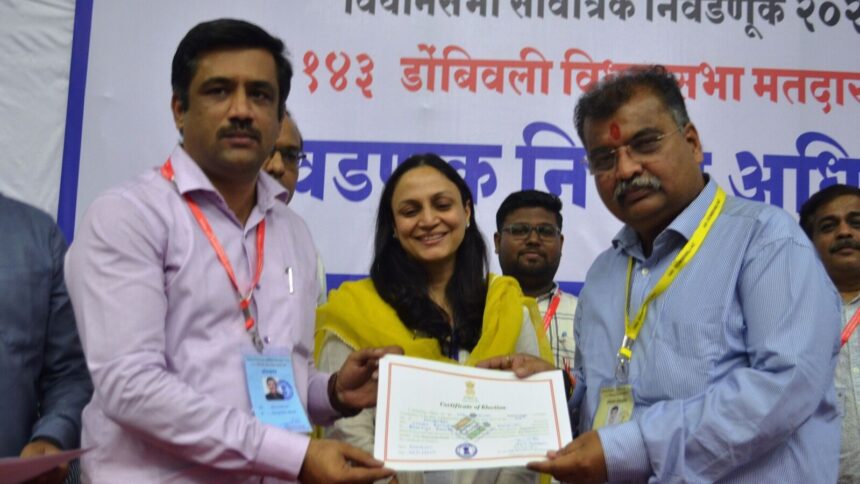BJP’s Organizational Restructuring in Maharashtra: The Rise of Ravindra Chavan
In a significant development for the Bharatiya Janata Party (BJP) in Maharashtra, Union Minister for Health and senior party leader JP Nadda announced the appointment of Ravindra Chavan as the working state president of the Maharashtra BJP. This strategic move coincides with the cabinet reconfigurations under the newly formed Mahayuti 2.0 government, led by Chief Minister Devendra Fadnavis. Chavan’s appointment comes at a pivotal time for the party as it gears up for local body elections slated for early next year.
Background of Ravindra Chavan
Ravindra Chavan, who previously served as the Public Works Minister in the Mahayuti government during its first term, is a prominent figure within the party. He represents Dombivli in the Maharashtra Legislative Assembly and has been re-elected in multiple terms, namely in 2009, 2014, 2019, and reputedly in 2024. Known for his association with Devendra Fadnavis, Chavan’s political background and extensive experience in organizational roles position him well to take on his new responsibilities.
Critics, however, note that despite his political acumen, Chavan did not secure a cabinet position in the latest government, hinting at the internal challenges the party faces in balancing leadership, representation, and performance.
Changing Dynamics in BJP Leadership
One of the core reasons behind the reshuffle within the Maharashtra BJP is the need for fresh leadership as the party prepares for upcoming elections. Senior leaders indicated that the party’s leadership desired to introduce new faces who could invigorate the organizational structure and engage the electorate more effectively. With Chavan at the helm, the BJP may aim to leverage his local popularity and organizational skills, particularly in the Konkan region, where he has previously showcased his capabilities.
Strategic Focus Ahead of Local Elections
The appointment of Chavan aligns with the BJP’s larger strategy of strengthening its grassroots presence ahead of critical local body and municipal corporation elections. His role as state president will involve overseeing essential organizational tasks, including membership drives and the strategic alignment of party ranks. A senior leader from the BJP mentioned that the new state president’s contributions are expected to be pivotal in mobilizing support and ensuring party cohesion.
Furthermore, the recent ‘Sanghathan Parv Samiti’ campaign launched in Nagpur emphasizes the BJP’s focus on enhancing membership and organizational capacities. As Chavan takes the lead, expectations are high regarding innovations in outreach and engagement tactics that could prove influential in solidifying the BJP’s position across Maharashtra.
The Bigger Picture: Future Challenges
While Ravindra Chavan’s elevation to the position of working state president is momentous, it does not come without challenges. The current political landscape in Maharashtra is competitive, with opposition parties like the Shiv Sena and the Nationalist Congress Party (NCP) maintaining considerable influence. Hence, the success of Chavan’s leadership will heavily depend on robust strategies that resonate with the electorate’s needs and sentiments.
Moreover, the party will have to address internal dynamics and potential friction points as it looks to present a united front during the elections. This internal unity will be crucial for leveraging the momentum gained from organizational changes while ensuring that the party remains responsive to the electorate.
Conclusion
Revamping leadership structures within the BJP illustrates the party’s commitment to staying relevant in the rapidly evolving political landscape of Maharashtra. Ravindra Chavan’s appointment reflects a calculated move to instill new energy into party operations, especially with critical elections on the horizon. The coming months will be crucial not only for Chavan to demonstrate his capabilities but also for the BJP to reinforce its foothold in Maharashtra’s dynamic political arena. As the party navigates these changes, the focus will undoubtedly be on fostering grassroots connections and strengthening organizational efficiency to ensure electoral success.









